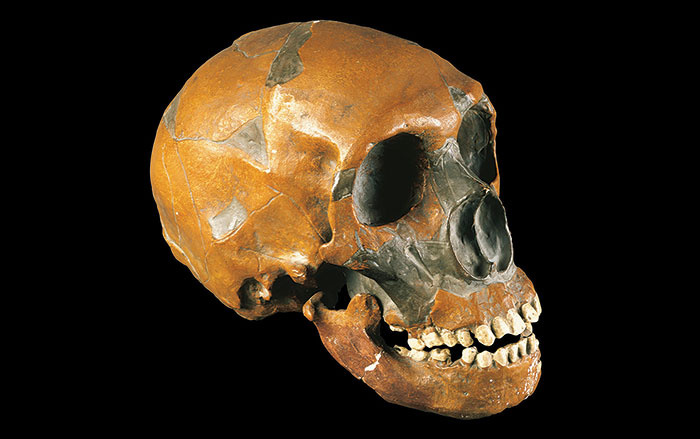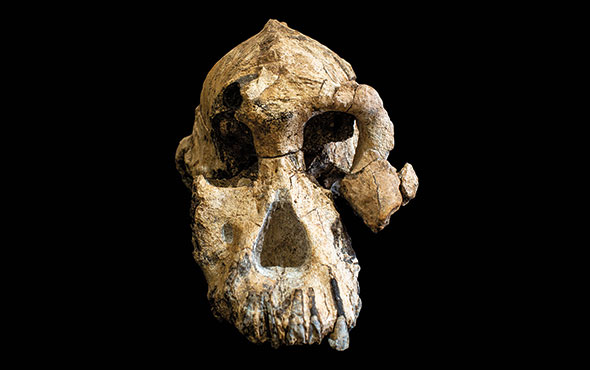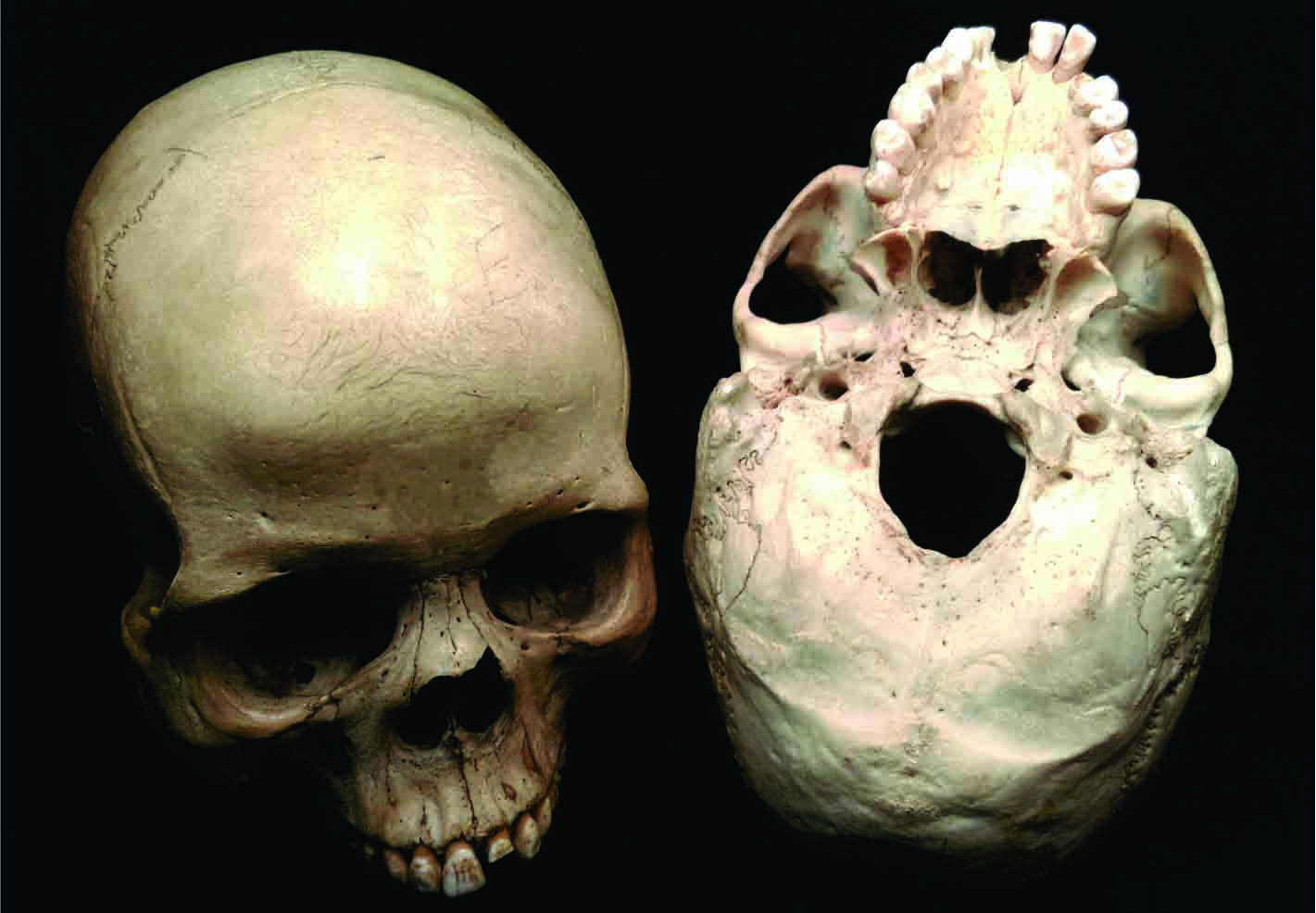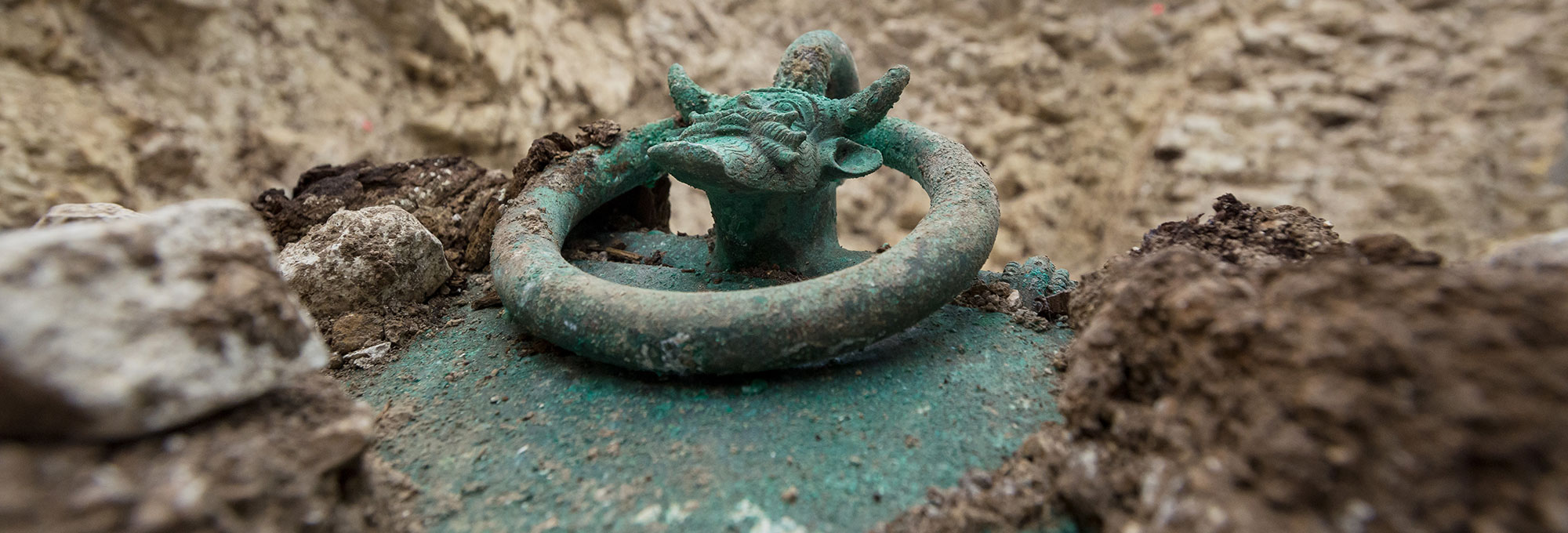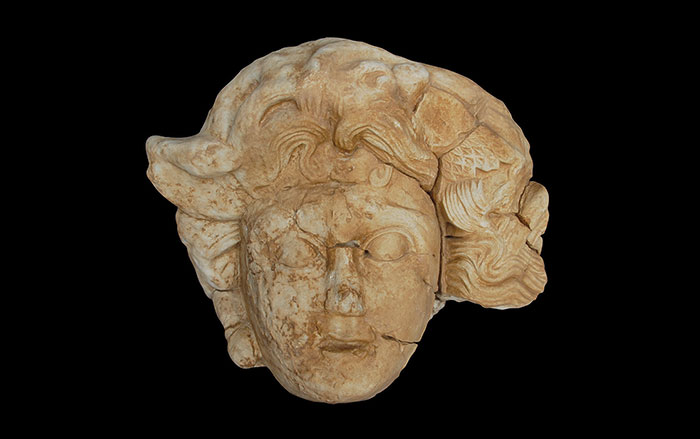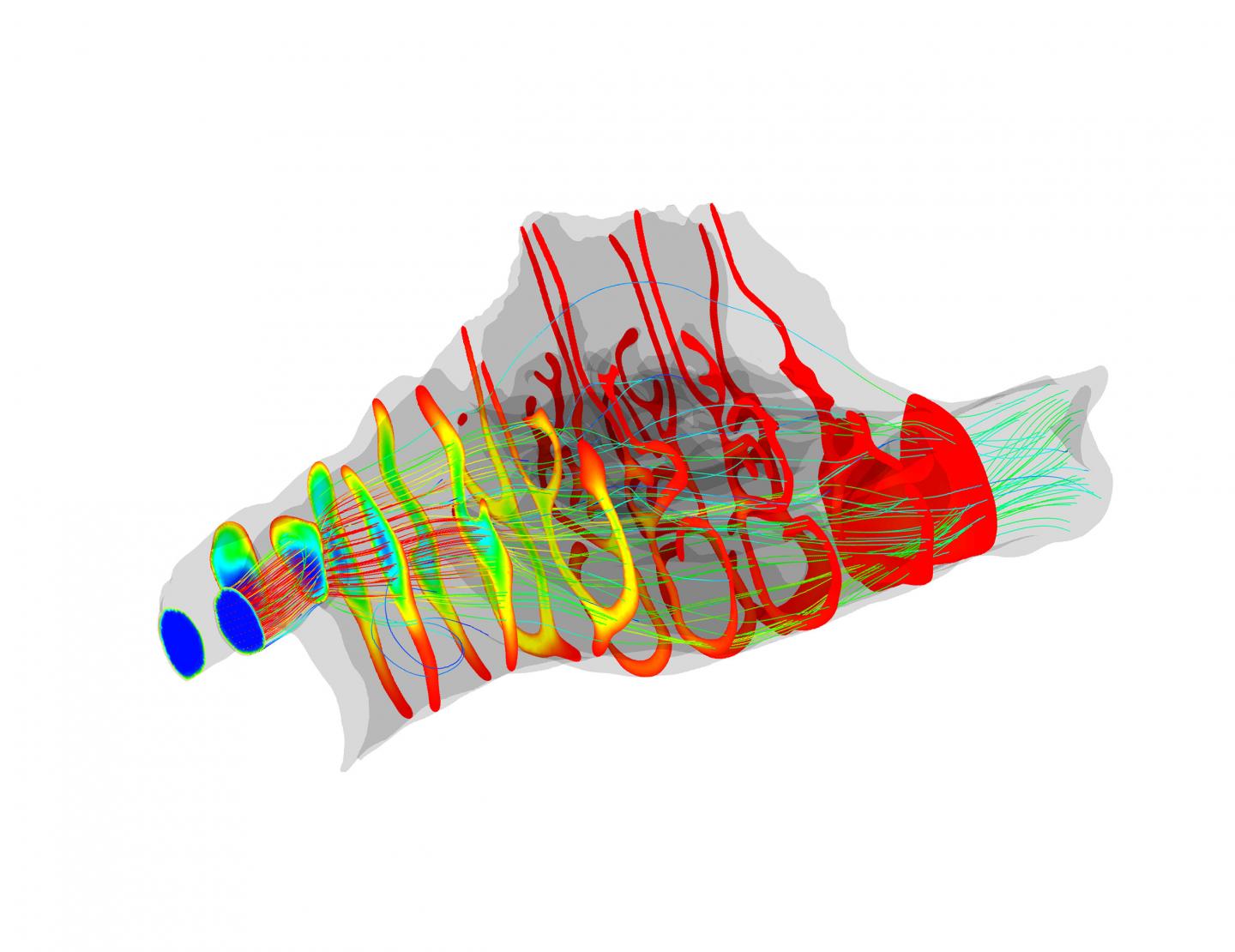
KYOTO, JAPAN—It had been thought that shifting climate led to adaptive evolutionary changes in the nasal cavity of the genus Homo. To test this idea, Takeshi Nishimura of Kyoto University and his colleagues used computational fluid dynamics (CFD) and 3-D models of the nasal passages of humans, chimpanzees, and macaques to evaluate how well their nasal passages conditioned inhaled air to the correct temperature and humidity for use by the lungs. The study, published in PLOS Computational Biology, found that non-human primates are better able to condition air, which flows horizontally through their nasal passages, while in humans, it flows upward and curves. But when the team made virtual modifications to the human nose so that its airflow would be horizontal, its air-conditioning performance did not improve. The scientists note that as human ancestors evolved flat faces, protruding external noses, and a short nasal cavity, the pharyngeal cavity lengthened to condition inhaled air for the lungs. Thus, the human high-nasal cavity may have evolved to compensate for other facial changes in the genus Homo. To read about the evolution of the throwing motion, go to "No Changeups on the Savannah."


